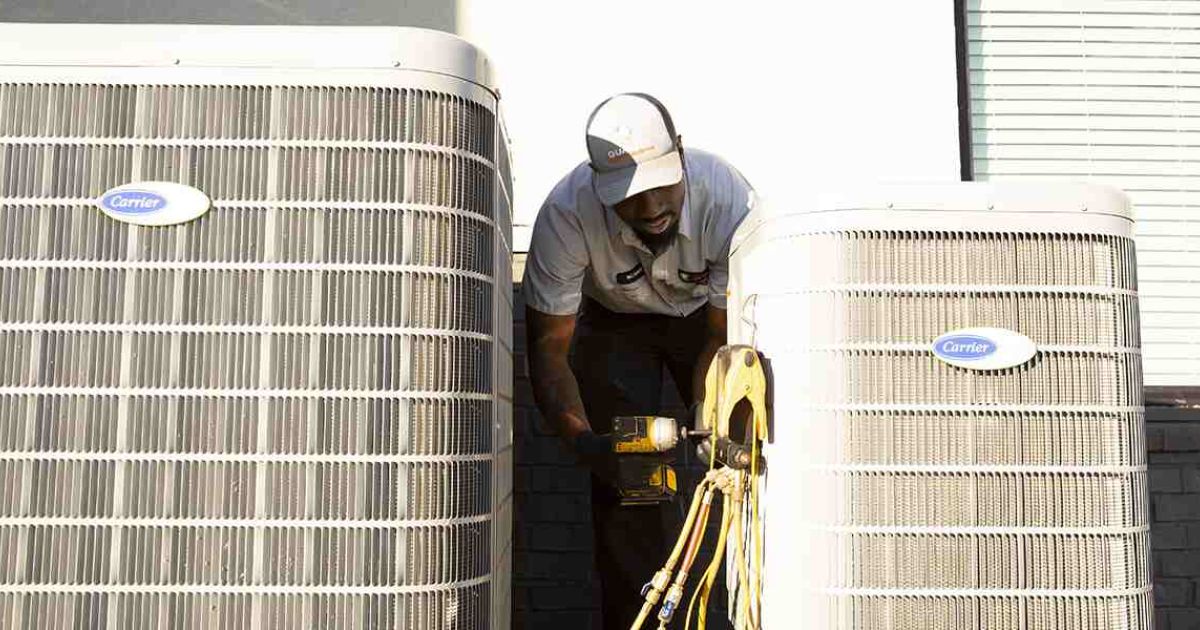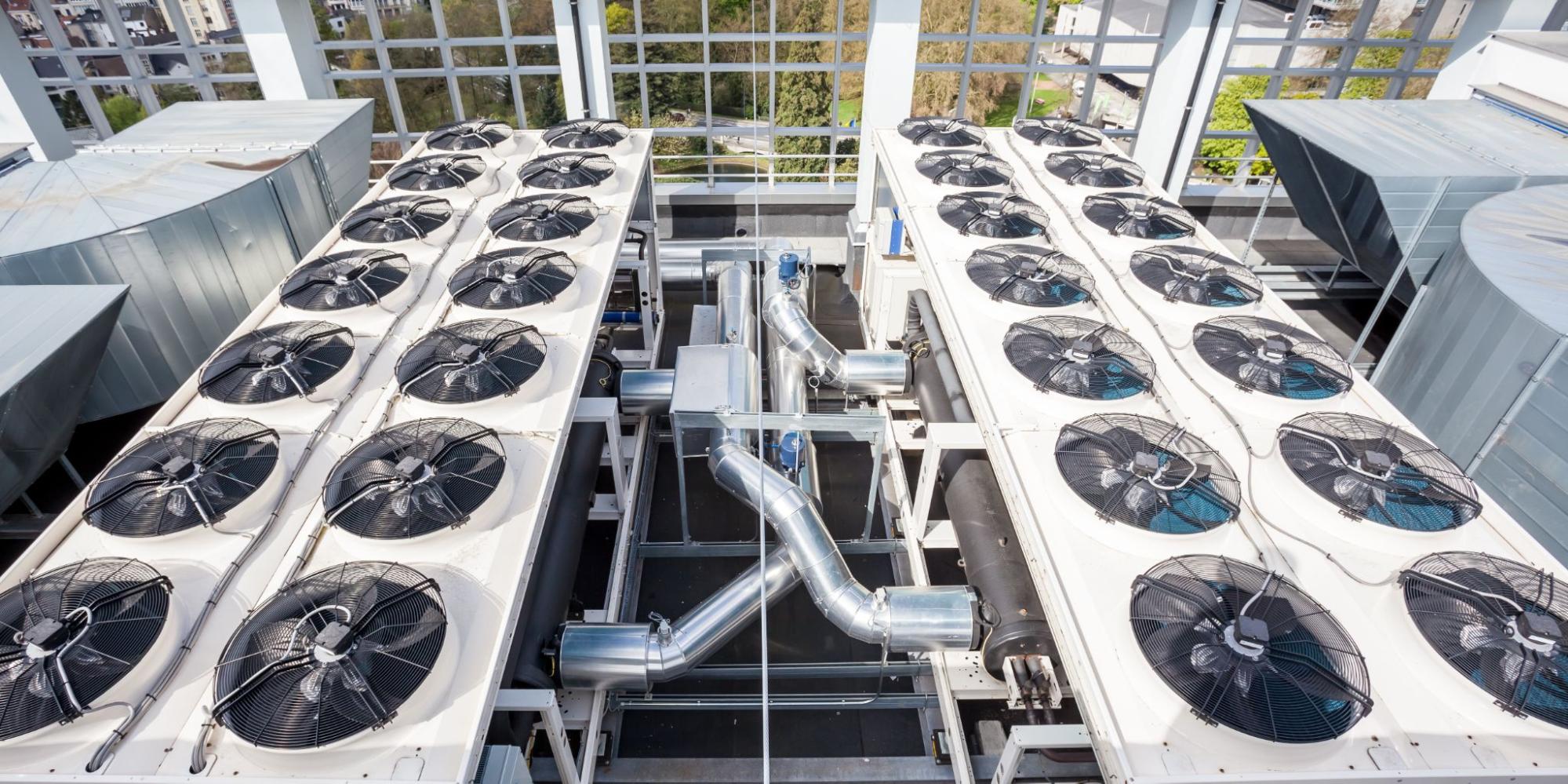Trusted Air Conditioning Contractor for Your Cooling Requirements
Trusted Air Conditioning Contractor for Your Cooling Requirements
Blog Article
Just How A/c Equipment Revolutionize Indoor Atmospheres for Year-Round Comfort
The arrival of air conditioning systems has undeniably transformed the means we experience interior environments, offering unmatched control over temperature level and convenience throughout the year. These systems go beyond simple temperature changes; they improve indoor air high quality and contribute dramatically to power effectiveness.
Temperature Control and Adaptability
When it comes to attaining year-round comfort, the importance of temperature control and adaptability in air conditioning systems can not be overstated. Modern air conditioning units provide innovative innovations such as programmable thermostats and variable speed compressors, which enable customers to preserve wanted temperature levels with impressive effectiveness.
Flexibility is another essential part of modern cooling systems. With features like zoning capacities, customers can customize temperature level setups in different areas of a building, satisfying specific preferences and use patterns. This degree of control ensures ideal comfort in every room while reducing energy waste. In addition, some systems integrate smart modern technology, allowing remote access and management with smart phones. This advancement enables users to readjust setups on-the-go, offering unmatched benefit and versatility.
In business rooms, this flexibility is especially useful, as it allows companies to create tailored environments that improve productivity and consumer satisfaction. Ultimately, the accuracy and versatility of modern a/c systems play an essential duty in providing reliable, year-round interior convenience.
Enhancing Indoor Air Top Quality
In enhancement to temperature level control, boosting interior air top quality is an important element of contemporary air conditioning systems. Incorporating high-efficiency particulate air (HEPA) filters, contemporary air conditioners can record tiny particles, such as dust, smoke, and pollen, which add to breathing issues and allergies.
Furthermore, advanced cooling systems usually consist of functions such as moisture control, which is pivotal in stopping mold and mildew growth and preserving optimum wetness levels (HVAC Contractor). Extreme moisture can cause pain, promote microbial development, and aggravate particular wellness conditions. By controling humidity, ac unit help mitigate these risks, better boosting interior air high quality
In addition, some systems incorporate air purifiers and ionizers, utilizing modern technologies that neutralize contaminants and shut off air-borne virus. This comprehensive method to air high quality management makes sure a much healthier indoor setting, lowering the threat of ailment and enhancing general well-being. Subsequently, the focus on air high quality improvement emphasizes the progressing role of air conditioning systems past plain temperature policy.
Power Performance Innovations
Modern a/c systems have gone through substantial improvements in power performance, adding to both expense savings and ecological sustainability. The fostering of high-efficiency compressors, variable speed motors, and progressed cooling agents are essential advancements that have transformed just how these systems run. High-efficiency compressors utilize less energy to maintain wanted temperatures, minimizing power intake. Variable rate electric motors adjust the airflow and cooling result to match real-time need, enhancing performance while lessening energy usage.
Smart thermostats have likewise played an important role in improving power performance. These gadgets discover individual choices and adapt cooling schedules accordingly, ensuring that air conditioning systems operate just when essential. Integration with smart home technologies enables remote and tracking, more cutting power waste.
These cooling agents are not only better for the atmosphere yet also increase system effectiveness, aligning with international efforts to minimize carbon impacts. Improvements in heat exchanger modern technology have actually enabled extra reliable warm transfer, enhancing overall system efficiency.
Influence on Health and Wellness
The influence of cooling systems on wellness and wellness is diverse, Residential Heating and air conditioning affecting various facets of life. Largely, these systems provide remedy for severe temperatures, which is important for at risk populaces such as the elderly and people with certain health and wellness problems. By maintaining a stable interior climate, a/c minimizes the threat of heat-related ailments, consisting of warmth exhaustion and heatstroke, thus guarding residents' wellness.

However, it is vital to keep a/c systems frequently to guarantee their ideal performance and to avoid possible health and wellness risks related to inadequately kept devices, such as the spreading of germs. Ultimately, when properly managed, cooling systems play a crucial role in enhancing convenience, promoting well-being, and sustaining a much healthier living atmosphere throughout the year.
Integration With Smart Modern Technology
Smart innovation has changed the method air conditioning systems run, offering improved benefit, control, and effectiveness. Modern cooling units currently incorporate perfectly with clever home environments, allowing individuals to manage their interior environment remotely using mobile phones or voice-controlled tools. This connection enables real-time tracking and modifications, ensuring that energy usage is maximized and comfort is preserved without the demand for continuous hands-on treatment.
The assimilation with smart technology also facilitates the usage of innovative scheduling functions, enabling systems to readjust temperature levels according to tenancy patterns and choices. HVAC Contractor. This not just maximizes convenience yet additionally lowers unneeded power use, adding to reduced utility expenses and a minimized carbon impact. In addition, smart sensors offer valuable data on air top quality and system efficiency, alerting users to potential problems prior to they rise into costly repairs
Moreover, compatibility with clever home assistants such as Amazon Alexa or Google Aide enhances customer experience by offering hands-free control and the capacity to create personalized automation regimens. As smart modern technology continues to evolve, it will undoubtedly bring additional developments to cooling systems, ensuring they continue to be at the leading edge of giving ideal interior atmospheres year-round.
Verdict

In enhancement to temperature control, improving interior air high quality is a crucial element of modern-day air conditioning systems. Integrating high-efficiency particle air (HEPA) filters, modern air conditioners can capture tiny fragments, such as dust, pollen, and smoke, which add to respiratory system issues and allergic reactions. By managing moisture, air conditioners help reduce these dangers, better boosting indoor air high quality.
The emphasis on air top quality improvement emphasizes the developing function of air conditioning systems past plain temperature level regulation.
Additionally, air conditioning systems contribute to improved indoor air quality by filtering out contaminants, allergens, and particle issue.
Report this page